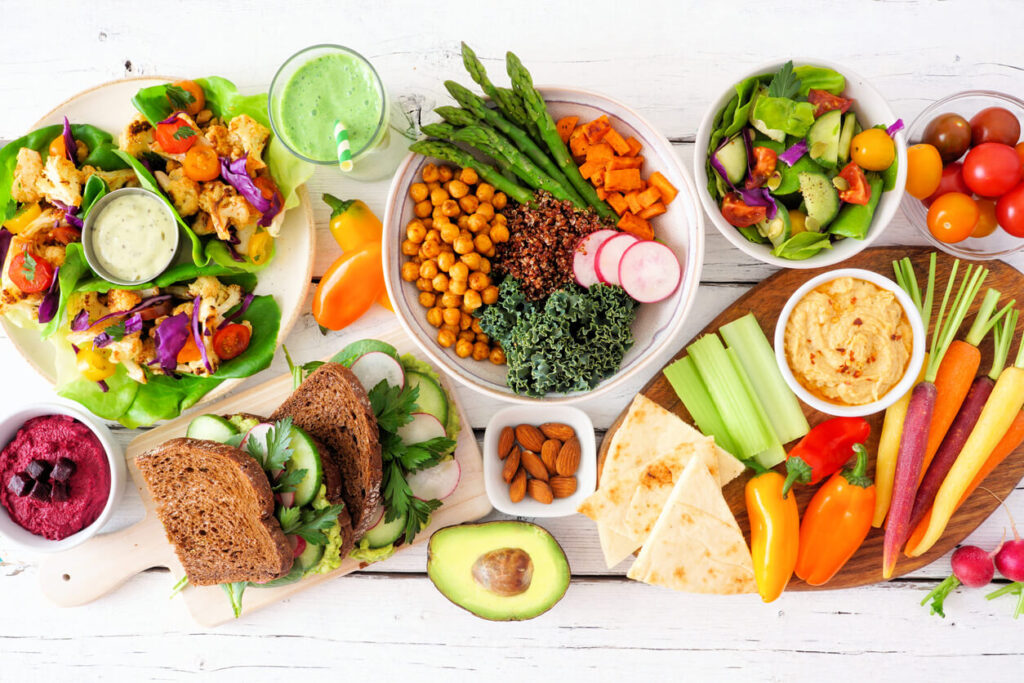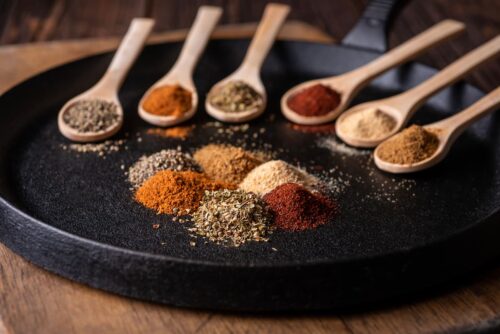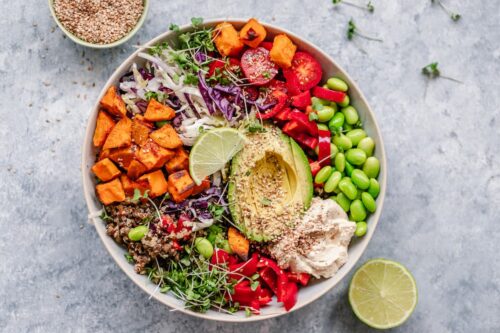How to Start a Plant-Based Diet
Updated October 8, 2023

Are you looking to change your life through your diet? You’ve come to the right place. It may feel like a large undertaking, but changing to a plant-based diet comes with many benefits.
Keep reading to learn how to start a plant-based diet and how to handle the challenges that come with this new lifestyle choice.
Ask Yourself Why You Want to Change Your Diet
Changing your diet is a huge adjustment—determination and persistence are required to keep with it until it feels natural. This is why people have such a hard time following fad diets: they aren’t sustainable, and people give up when they don’t see benefits.
A plant-based diet is different because it has long-lasting benefits. People can have a variety of reasons for wanting to change to a plant-based diet, such as wanting to:
- Be healthier
- Protect the environment
- Lose weight
- Improve quality of life
However, no amount of motivation can keep you going if you don’t understand what’s needed to make this change. Take time to think about all aspects of changing to a plant-based diet like how friends will react, how your body will change, etc.
Once you consider all that, ask yourself: Am I still willing to do this? Am I willing to create a plan and follow it?
Creating Diet Transition Goals Ahead of Time
We all need goals to build habits; it helps create a path for us to follow. One of the first steps to learning how to start a vegan diet or plant-based diet is to create both small and large goals. Your large goal could be your motivator or another outcome you want to achieve.
Goals can be:
- “I want to lose # pounds by x time”
- “I want to stop eating red meat entirely by x”
- “I want to have a majority of meatless meals by x”
By having both large and small goals, you’ll have an overall outcome you want to achieve and smaller goals to hit and celebrate. This will keep you motivated throughout the lifestyle shift.
Building a Personalized Meal Plan
Creating meal plans is an easy way to help you succeed through this transition process. When you’re hungry, it’s more likely you’ll microwave a premade, chemical-filled meal than a healthy plant-based meal.
A meal plan will also help you create a grocery list to ensure no food or money is wasted. Dr. McDougall has a variety of plant-based meal recipes you can use to create your meal plan:
- Dips & Spreads
- Dressings & Sauces
- Favorite Vegan Recipes
- Plant-Based Entrees
- Sandwiches & Wraps
- Soups
- Vegan Breakfast Recipes
- Vegan Dessert Recipes
- Vegan Salads & Sides Recipes
Educate Yourself on Plant Nutrients
There are many misconceptions about plant-based diets, so it’s important to research how to make balanced meals. Dr. McDougall has a variety of resources to help you learn more about plant-based diets.
You can also speak to others following a plant-based diet for advice.
Read Food Labels
There will be times when you need premade foods, so you must learn how to read food labels.
First of all, don’t pay attention to what’s on the front of the package. The info is usually a bit deceptive. Instead, look at the ingredient list. You want as few ingredients as possible, and you want to recognize all of them.
Ingredients are listed in descending order, meaning the first ingredient is the main one and each following ingredient constitutes a smaller and smaller portion of the food.
Also, make sure that products claiming to be made from whole grains actually say “100% whole grains”. Being made with whole grains doesn’t mean it’s all whole grain.
One final suggestion: If the nutritional facts say there’s any cholesterol in the food, take a second look at the ingredient list. Plant-based foods don’t have cholesterol.
Don’t Give Up
No matter how much you plan, you will face challenges as you develop this diet into a habit. Luckily, challenges don’t have to be major problems—they can instead be small hiccups you can overcome. Don’t give up! Just take it one meal at a time.
Cravings
Cravings will happen, but you can choose how to react to them. One method of dealing with cravings is to distract yourself until the craving goes away. You can exercise, work, engage in a hobby, or do something else that takes your mind away from the cravings.
Another method is to think about why you have cravings, and how you can satisfy them healthily. Are you craving beef jerky because you want salt? What could be a healthy alternative? (Veggie dips are usually a good go-to.)
Going Out to Restaurants or Social Gatherings
Starting a new diet can make going out to eat a little intimidating. But that doesn’t mean you can’t go out with friends and enjoy life!
How to Handle Restaurants
Many restaurants offer plant-based meals, though the variety can be lacking and full of oil. You can only eat so many salads. Here are a few tricks you can try:
- Create a custom meal with different side dishes.
- Eat a large meal beforehand so you can enjoy a drink or side without feeling hungry.
- Look at the menu ahead of time and suggest a different restaurant if you can’t find something to eat.
- If you have any questions about the menu, call ahead and learn your options.
How to Handle Social Gatherings
A gathering with friends can get awkward if you’re the only one eating a plant-based diet…but that doesn’t mean you have to go hungry or feel uncomfortable. Instead, take control through these different strategies:
- Check in with the host and bring your own food; this not only ensures you won’t go hungry, but you can show others how delicious the diet is.
- Don’t be afraid to engage with others. If people are genuinely interested in your diet and why you changed, talk with them and become a resource for them (politely ignore them if they’re being rude).
- Don’t be afraid to snack. Instead of a meal, make sure to grab a bunch of plant-based snacks.
- Eat a big meal before you go so you don’t have to worry about being hungry.
Being Hungrier than Usual
Some people experience extra hunger as they transition to a plant-based diet. There are plenty of ways to manage your extra hunger, such as:
- Drinking more water
- Eating until you are comfortably full (if eating the right foods, your hunger drive will tell you how much to eat)
- Practicing mindful eating
- Slowing down while eating meals
Celebrating Successes and Progress
Don’t forget to celebrate progress! It doesn’t matter if it’s a small win, like you went an entire day eating only plant-based foods, or if you’ve been successful at it for a month. Any progress you make is a success.
Also, think about how much good you’re doing for your health. Every little bit counts!
Even think about how you’re helping the environment by not participating in animal agriculture, which is rapidly taking its toll on the planet.
If you are getting impatient with your progress, look at other people’s successes, like Cloudy Rockwell.
You Don’t Have to Make This Change Alone
There is so much information out there on how to start a plant-based diet, it can be a bit overwhelming. This is why Dr. McDougall has created actionable and user-friendly recipes, blogs, and educational resources.
To learn more about plant-based diets, make sure to explore our resources.
Recommended Articles

What is the Best Formulation of Vitamin B12?

Are There Any Spices to Avoid with Diabetes?







